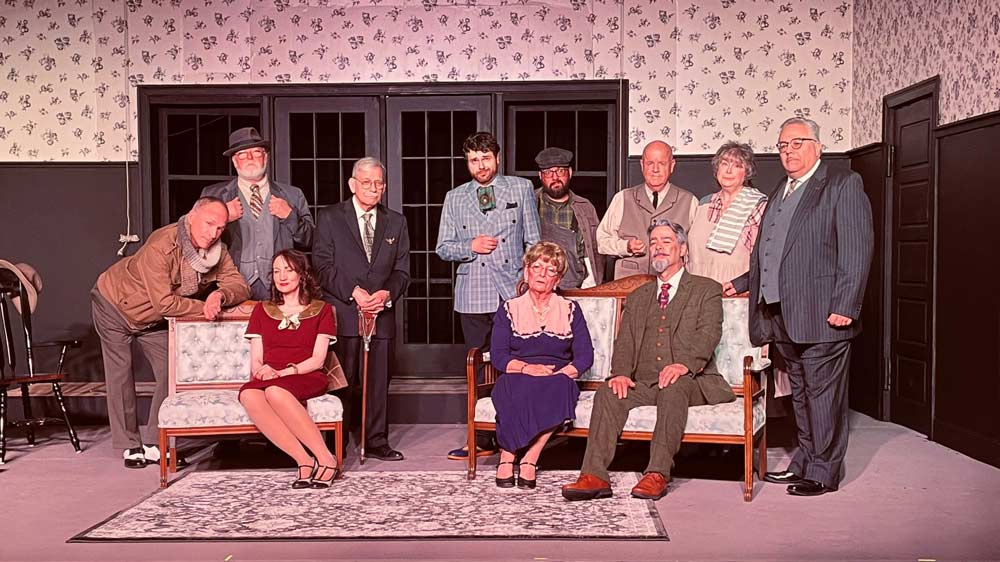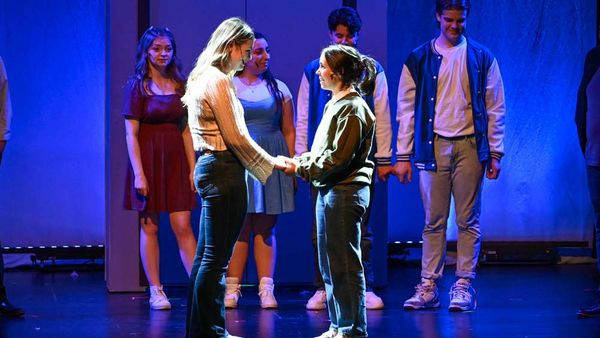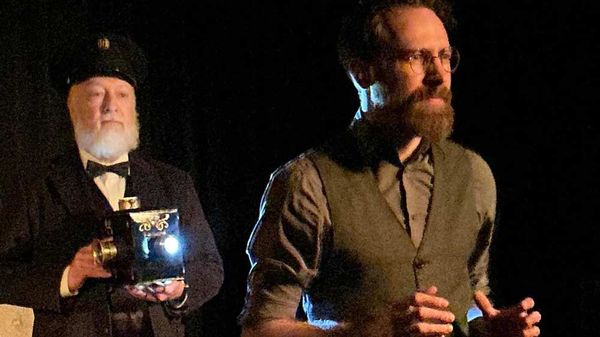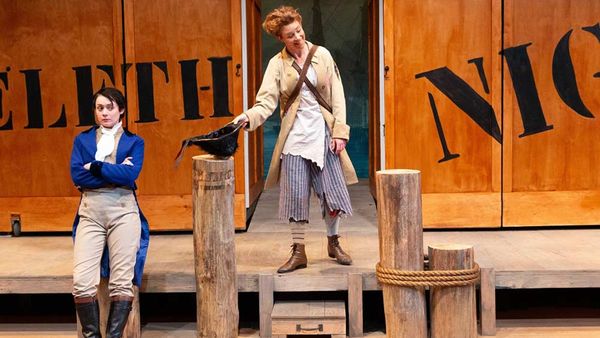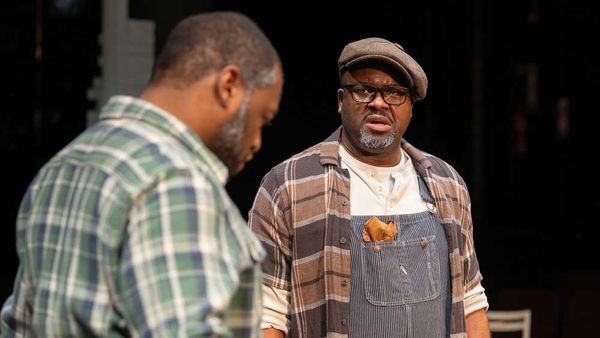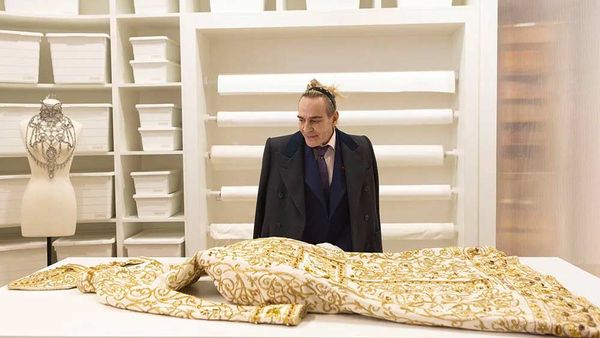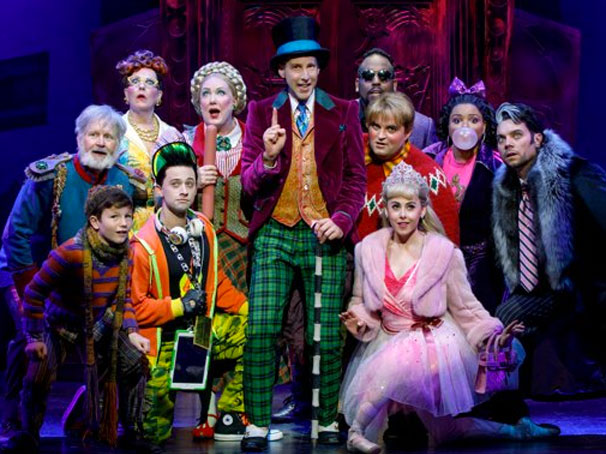
January 13, 2019
Charlie and the Chocolate Factory
Robert Nesti READ TIME: 5 MIN.
"Charlie and the Chocolate Factory," the big, slick musical adaptation of Roald Dahl's short story, lurches between the treacly and the dark – the very treacly in the first half and the very dark in the second. What else can you say about a musical whose body count challenges that of "Sweeney Todd?" And it is a children's musical!
No doubt these comic, if grisly deaths are in pitch with Dahl's vision, but it must be said they are a bit shocking, especially when one child blows up and another is dismembered by some human-sized squirrels. That these children are played by adults mitigates the shock, but the reaction of a family sitting in front of me was priceless. What is also shocking is candy magnate Willy Wonka's glib reaction to these deaths, which only brought to mind our current President and his less-than-empathetic responses to things and his maniacal need for media attention.
It is media attention that drives the plot. Wonka (played by the game, sure-voiced Noah Weisberg) is the owner of a candy empire in decline. His brand, he is told by the sweet-tempered titular character, is considered too old-fashioned by today's standards to be a player anymore. In order to make his candy relevant again, he hatches public relations scheme in which he brings five lucky winners to his factory, closed to the public for years. He wants attention, to be sure, but his real reason for such a plan is to find amongst the winners someone that will share his vision and take over the management of his mysterious factory.
There is little promise in the four winners: obese Augustus Gloop (Matt Wood); spoiled Russian rich girl Veruca Salt (Jessica Cohen), with a dad who could be a crony of Putin; self-styled Queen of Pop Violet Beuaregarde (Brynn Williams), right out of a Disney teen show; and hacker Mike Teavee (Daniel Quadrino). Only Charlie (winningly played by Henry Boshart, who alternates with Collin Jeffery and Rueby Wood during the run) shows promise, if only because his self-effacing humility sets him apart from the others. Little do any of them realize they're in for a challenge out of the "Hunger Games" when they finally enter Wonka's factory.
This happens at the end of the first act; up to then the musical, with a book by David Greig and a score by Marc Shaiman and Scott Wittman, follows how each gets finds their golden ticket, with an emphasis on Charlie and his loving, poverty-stricken family. They live in picturesque squalor (thanks to Mark Thompson's whimsical designs) and are surprisingly cheerful, despite their circumstances. Charlie's Mom (a fine Amanda Rose) attempts to bring Charlie, a dreamer, down to Earth; but his comic quartet of grandparents, led by the fabulist Grandpa Joe (James Young), cheer him on.
Thankfully Shaiman and Wittman's pastiche numbers that define each of the four repugnant winners poke fun at contemporary memes. Especially funny is Mrs. Teave (Madeleine Doherty), who sings of living with her son with the help of a litany of controlled substances; as well as Violet's ode to herself as the Queen of Pop; and Wonka's appearance at the end of the act in a clever reference to "Les Miz" (or at least that what it seemed it was meant to be) dressed in a hood and collapsing on stage.
Once inside the factory Mark Thompson's design elements take over, as do Basil Twist's remarkable puppets. The various rooms are rendered on giant video screens that share the back of the stage and the proscenium with visual effects run from the garish to the surreal and creepy; and Joshua Bergasse's choreography is a hoot once the Oompa Loompas take over. That the these small, odd creatures steal the show with their dancing antics keeps the entertainment quotient high. It is probably best to see how brilliantly realized they are thanks to imaginative designs by master puppeteer Twist that are executed by ensemble members who, literally, dance with their hands.
Wonka, on the other hand, is less brilliantly realized, at least as a sympathetic force at the story's center. He is downright mean to his prospective successors as each, save for Charlie, meets their end. Of course that they are each repulsive in their own way makes it apparent that this is a fable in which the nasty kids get their comeuppance; but that this comes at the hands of the creepy Wonka only points to the big hole in this adaptation. As conceived by librettist Greig (who reworked this characterization between the London and New York productions of the show), Wonka is the kind of person your parents warned you about when telling you not to take candy from strangers. That Charlie and his uncle, who acts as his adult companion on the tour of Wonka's factory, don't head to the nearest exit as the other children suffer Wonka's particularly harsh life lessons make you wonder if dimness may run in their family.
Nor do Shaiman and Wittman help that much in defining Wonka's character. Save for the two songs textured in from the 1978 film version, his musical numbers offer little insight into his comically twisted mind. Even the anthemic "The View from Here," that means to end the journey on an uplifting note felt oddly flat, turning this kind of mean into a sappy visionary. Musically it soars, abetted by a striking stage picture of Wonka and Charlie ascending to the heavens in an elevator; but emotionally it is the equivalent of a memo written about a management change.
Throughout the show, it is suggested that Wonka has serious intimacy issues. Where better to explore them in song? But Shaiman and Wittman never go there, relying on the generic platitudes of the Leslie Bricusse and Anthony Newley songs to define him. Both are lovely songs and they are nicely integrated into the whole but don't really fit a character as quirky and strange as Wonka. For most of the time, he's a callous media hound and self-absorbed legend in his own mind, oblivious to Charlie's poverty and gleeful when the gold-ticketed winners bite the dust. Even Charlie's agreeable optimism wears thin, making him seem like he's going to grow up and star in a musical version of "Forrest Gump" by the end.
Jack O'Brien's oversized direction keeps the show diverting; and as performed by this energetic cast, is enjoyable throughout. That it leaves such a sour taste is the fault of an adaptation that never quite brings its divergent elements together in a way that has you leaving the theater feeling happy for Charlie. Instead, you worry about his well-being, wondering long is it going to be before Wonka has one of his mood swings.
"Charlie and the Chocolate Factory" continues through January 20 at the Boston Opera House, 539 Washington Street, Boston, MA. For more information, visit visit the musical's website.
Robert Nesti can be reached at [email protected].

